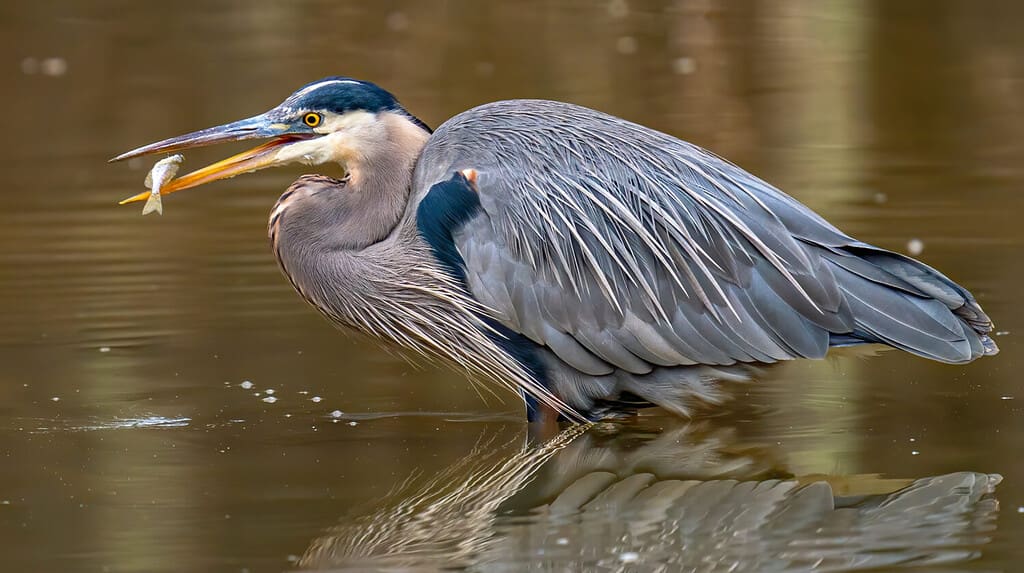This clip is as stunningly beautiful as it is bizarre. It shows a great blue heron taking a lot of interest in a fish that an osprey has caught. Unsurprisingly, the osprey is not exactly willing to relinquish its prize. That does not stop the heron, who repeatedly tries to grab the fish and then acts surprised when the osprey retaliates! Scroll down to see the full extraordinary encounter.
What Do Great Blue Herons Normally Eat?
The great blue heron (Ardea herodias) is a magnificent bird. Despite their huge wingspan, which can be up to 7 feet, they weigh only around 6 pounds. In some cultures, they are called cranes.
They primarily feed on fish and do this mainly during the day but some have been seen feeding at night. Herons are most active around dusk and dawn. Their fishing technique is to wade into shallow water and then use their sharp beak like a spear.
If they come across other small animals when they are wading, they are also willing to eat them. Therefore, their diet can include frogs, lizards, small snakes, and young birds. They have even been seen eating some small mammals. Dragonflies and many other aquatic invertebrates can also be added to their menu. Most herons swallow their food whole and have even been known to choke on it if it is too large!

Great blue herons primarily feed on fish.
©Krumpelman Photography/Shutterstock.com
Do Herons Normally Steal Fish?
Ospreys are not the only ones who have to worry about great blue herons stealing their fish. The owners of stock fishponds will be only too familiar with this bird’s thieving habits. A lot of expensive fish can be lost to herons. Therefore, owners usually install netting or use decoy birds to scare them away.
If you have a garden pond with fish in it, you may also have been the victim of a heron raid! There are several things that you can do to deter these fish thieves. Netting can be a cost-effective heron-proof solution. Even just a network of strings above the surface of the water may be enough to put them off. However, a small mesh netting is likely to be more effective. Because herons like to have a 360-degree view at all times so that they can see danger coming, some tall plants can be helpful. By making your pond more enclosed, you make it less attractive to herons!
Watch the Stunning Footage Below
The photo featured at the top of this post is © Joseph Scott Photography/Shutterstock.com
Thank you for reading! Have some feedback for us? Contact the AZ Animals editorial team.







